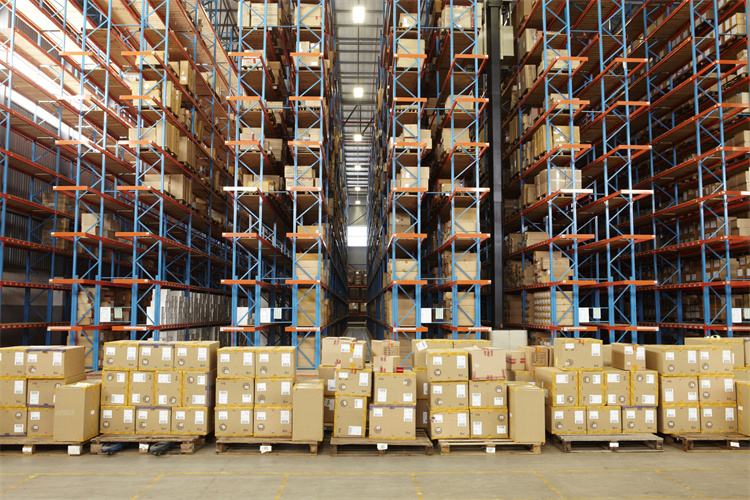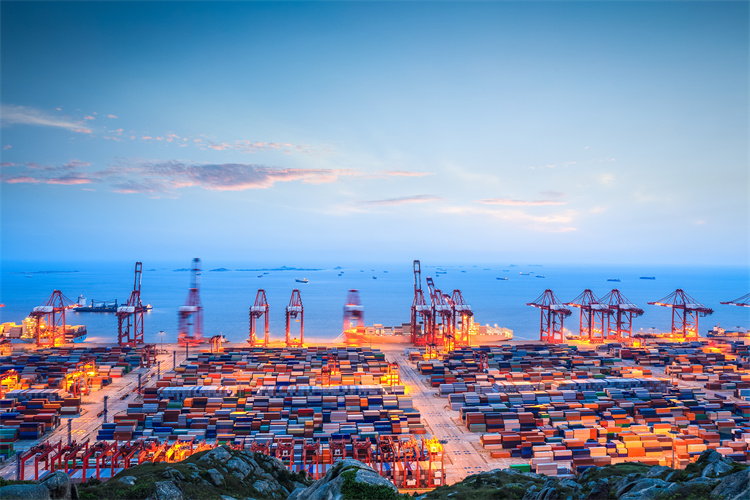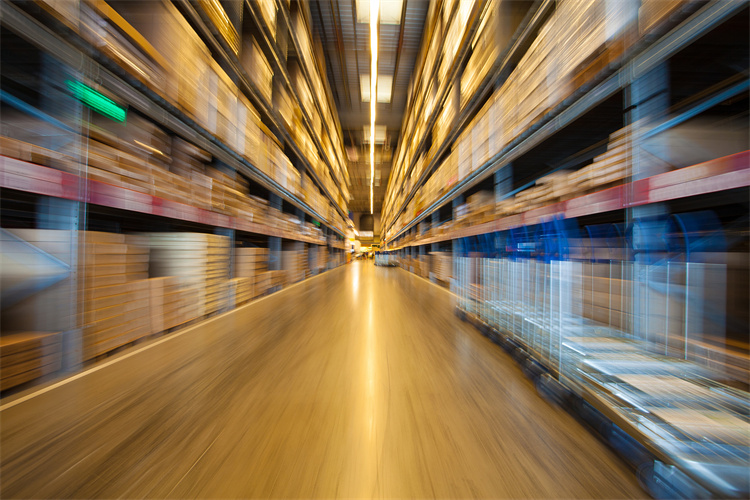Analysis of Customs' Role and Challenges in the Global Economy

Customs' Role in international trade is crucial. They ensure that goods move smoothly across borders while adhering to regulations. Customs authorities facilitate trade by streamlining processes and collecting tariffs, which contribute significantly to national revenues. The global economic landscape has evolved rapidly, with cross-border trade increasing by 25% over the past decade. This growth impacts customs operations, requiring them to adapt to changing trade patterns influenced by geopolitical events. As world trade volume today stands at approximately 44 times the level recorded in the early days of the GATT, customs must navigate these complexities to maintain efficiency and security.
Customs' Role in the Global Economy

Facilitating International Trade
Customs authorities play a pivotal role in facilitating international trade. They ensure that goods move efficiently across borders, which is essential for global commerce.
Streamlining Import and Export Processes
Customs streamline import and export processes by implementing efficient procedures. They reduce delays at borders, allowing businesses to operate smoothly. By adopting modern technologies, customs administrations enhance the speed and accuracy of processing shipments. This efficiency supports businesses in meeting their delivery timelines and maintaining competitiveness in the global market.
Ensuring Compliance with Trade Regulations
Compliance with trade regulations is crucial for maintaining fair trade practices. Compliance with trade regulations Customs ensure that all goods entering or leaving a country adhere to these regulations. They verify documentation and inspect shipments to prevent illegal activities. This vigilance protects domestic industries and promotes a level playing field for international trade.
Protecting National Security
Customs also contribute significantly to national security. They act as the first line of defense against threats that may enter through international trade channels.
Preventing Illegal Trade Activities
Customs authorities work tirelessly to prevent illegal trade activities. They intercept contraband, counterfeit goods, and other illicit items. By doing so, they protect consumers and uphold the integrity of legitimate businesses. Their efforts deter criminal networks and safeguard the economy from the adverse effects of illegal trade.
Safeguarding Against Threats
In addition to preventing illegal trade, customs safeguard against broader threats. They monitor for potential security risks, such as weapons smuggling or the entry of harmful substances. Customs collaborate with other agencies to address these challenges, ensuring the safety and security of the nation.
Revenue Collection
Revenue collection is another critical aspect of customs' responsibilities. They collect tariffs and duties, which are vital sources of government revenue.
Tariffs and Duties
Customs collect tariffs and duties on imported goods. These charges protect domestic industries by making foreign products less competitive. They also generate significant revenue for governments, funding public services and infrastructure projects. Customs' role in revenue collection supports economic stability and growth.
Impact on National Economies
The impact of customs on national economies extends beyond revenue collection. By enforcing trade policies, customs promote economic development and wealth creation. They help countries integrate into the global economy, attracting investment and fostering innovation. Customs' role in economic policy implementation strengthens national economies and enhances global competitiveness.
"Customs administrations perform essential functions that facilitate the flow of goods and services across international borders." This quote highlights the multifaceted role of customs in supporting both trade and security.
Challenges Faced by Customs

Customs' Role in the global economy extends beyond facilitating trade and collecting revenue. Customs' Role in the global economy They face numerous challenges that require adaptation and innovation. These challenges stem from technological advancements, globalization, and resource constraints.
Technological Advancements
Adapting to Digitalization
Customs administrations must adapt to the rapid pace of digitalization. The integration of digital technologies into customs processes enhances efficiency and accuracy. However, it also demands significant changes in operations. Customs authorities need to implement advanced IT systems to manage the increasing volume of data. This transition requires investment in technology and training for personnel. By embracing digitalization, customs can streamline operations and improve service delivery.
Cybersecurity Threats
With digitalization comes the risk of cybersecurity threats. Customs' Role in safeguarding national security includes protecting sensitive information from cyberattacks. Cybercriminals target customs systems to access confidential data or disrupt operations. Customs administrations must invest in robust cybersecurity measures to prevent breaches. They need to collaborate with other agencies and experts to develop comprehensive security strategies. Protecting digital infrastructure is crucial for maintaining trust and ensuring the smooth flow of trade.
Globalization and Trade Agreements
Complexity of Trade Regulations
Globalization has led to an increase in international trade agreements. These agreements often result in complex trade regulations that customs must navigate. Customs' Role involves ensuring compliance with these regulations while facilitating trade. The complexity of trade laws can lead to delays and increased costs for businesses. Customs authorities must work to simplify procedures and provide clear guidance to traders. By doing so, they can enhance efficiency and support economic growth.
Harmonizing Standards
Harmonizing standards across different countries presents another challenge. Customs must align their practices with international norms to facilitate trade. Differences in laws, cultures, and languages can complicate this process. Customs' Role includes working with international organizations to develop common standards. This collaboration helps reduce barriers to trade and promotes global economic integration.
Resource Constraints
Budget Limitations
Customs administrations often operate under budget constraints. Limited financial resources can hinder their ability to invest in technology and infrastructure. Customs' Role in revenue collection is vital, yet they must balance this with operational costs. Efficient resource management is essential to maintain service quality and meet growing demands. Customs authorities need to advocate for adequate funding to support their critical functions.
Workforce Training and Development
Training and developing the workforce is crucial for customs to meet modern challenges. Customs' Role requires skilled personnel who can handle complex trade issues and technological advancements. Continuous training programs ensure that staff remain knowledgeable and capable. Investing in human capital enhances customs' ability to adapt to changing environments and improve operational efficiency.
"Customs administrations perform essential functions that facilitate the flow of goods and services across international borders." This quote underscores the importance of addressing these challenges to maintain customs' pivotal role in the global economy.
Strategies to Overcome Challenges
Customs authorities face numerous challenges in the global economy. To address these, they must adopt effective strategies that enhance their operations and ensure smooth trade facilitation.
Embracing Technology
Implementing Advanced IT Systems
Customs administrations need to implement advanced IT systems to manage the increasing volume of trade data. These systems streamline operations by automating routine tasks and reducing manual errors. By investing in cutting-edge technology, customs can improve the accuracy and speed of processing shipments. This technological advancement supports efficient trade flows and enhances the overall effectiveness of customs operations.
Enhancing Data Sharing and Analysis
Data sharing and analysis play a crucial role in modern customs operations. Customs authorities must enhance their data-sharing capabilities to facilitate real-time information exchange with other agencies and stakeholders. Improved data analysis helps identify trends and potential risks, enabling customs to make informed decisions. By leveraging data analytics, customs can optimize their processes and better respond to emerging challenges in international trade.
Strengthening International Cooperation
Collaborative Efforts with Other Nations
International cooperation is vital for customs to overcome global challenges. Customs authorities should engage in collaborative efforts with other nations to share best practices and develop common strategies. Joint initiatives can address issues such as smuggling and trade compliance more effectively. By working together, customs administrations can enhance their capabilities and contribute to a more secure and efficient global trade environment.
Participating in Global Trade Organizations
Participation in global trade organizations provides customs with valuable opportunities for collaboration and learning. These organizations offer platforms for customs authorities to discuss challenges and develop harmonized standards. By actively participating, customs can influence international trade policies and ensure that their interests are represented. This involvement strengthens customs' ability to navigate complex trade regulations and promote global economic integration.
Improving Operational Efficiency
Streamlining Procedures
Customs must streamline their procedures to improve operational efficiency. Simplifying processes reduces delays and lowers costs for businesses. Customs authorities should focus on eliminating unnecessary steps and adopting standardized practices. This streamlining enhances the flow of goods across borders and supports economic growth by facilitating trade.
Investing in Human Capital
Investing in human capital is essential for customs to meet modern challenges. Customs authorities need to provide continuous training and development programs for their workforce. Skilled personnel can handle complex trade issues and adapt to technological advancements more effectively. By prioritizing workforce development, customs can enhance their operational efficiency and maintain their pivotal role in the global economy.
"Import/export expert witnesses may be called upon to provide testimony in cases involving international trade disputes, customs and tariff issues, transportation and logistics disputes, and compliance with import/export regulations and laws." This insight underscores the importance of expertise and collaboration in overcoming customs challenges.
JUSDA's Role in Enhancing Customs Efficiency
Leveraging JusLink Intelligent Supply Chain
JUSDA enhances customs efficiency by utilizing its JusLink Intelligent Supply Chain. This platform integrates IoT, cloud computing, and big data to streamline supply chain operations. By providing real-time collaboration and information sharing, JusLink optimizes the flow of goods across borders. Customs authorities benefit from this technology as it reduces processing times and improves accuracy in documentation.
The platform's ability to analyze vast amounts of data helps identify potential risks and compliance issues. This proactive approach supports customs in maintaining security while facilitating trade. JusLink's advanced features ensure that customs processes align with modern technological demands, enhancing overall efficiency.
Providing Industry-Specific Solutions
JUSDA offers tailored solutions for various industries, addressing unique customs challenges. By understanding the specific needs of sectors like electronic manufacturing, automotive, and medical health, JUSDA provides customized logistics and compliance strategies. These industry-specific solutions help businesses navigate complex trade regulations and streamline customs procedures.
JUSDA's expertise in supply chain logistics ensures that companies meet international trade standards. Their comprehensive services, including air, land, sea, and rail transport, support efficient customs clearance. By offering specialized solutions, JUSDA enhances the ability of businesses to comply with customs requirements, reducing delays and costs.
"Import/export expert witnesses may be called upon to provide testimony in cases involving international trade disputes, customs and tariff issues, transportation and logistics disputes, and compliance with import/export regulations and laws." This insight highlights the importance of expertise in navigating customs complexities, a role JUSDA fulfills through its innovative solutions.

SMART JusLink
Supply Chain Management Solution
Customs play a pivotal role in the global economy by facilitating trade, ensuring compliance, and protecting national security. They face challenges such as technological advancements, globalization, and resource constraints. Solutions include embracing technology, strengthening international cooperation, and improving operational efficiency.
JUSDA enhances customs efficiency through its JusLink Intelligent Supply Chain, offering tailored solutions for various industries. The future of customs in international trade looks promising with continued innovation and collaboration, ensuring seamless cross-border transactions and fostering global economic growth.
See Also
Revealing How Global Trade Policies Affect Economies
Addressing Globalized World Challenges in Supply Chain Expansion
Discovering the Importance of Supply Chain Visibility in Global E-commerce Success
